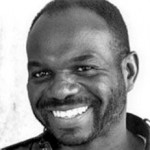She is a teacher in Cape Town, South Africa. But on Friday, March 28, Nobuntu Matinise celebrated her own graduation—having flown halfway around the world, to New York City’s Columbia University, to enroll in the M·A·C AIDS Fund Leadership Initiative. The two-month program selected 12 fellows from among 140 South African applicants, all of them accomplished local leaders wanting to work with HIV/AIDS experts in building HIV prevention programs that address the specific needs of their communities. Armed with new knowledge about behavioral prevention, the group returned home to South Africa on March 31 to combat HIV/AIDS and the gender inequalities that fuel new infections there. The program trained the fellows to spread HIV prevention information that won’t be hindered by regional taboos or language barriers.
“When you talk to people, the language that you use is very important,” says Matinise, who’s also a chair on the board of directors of Women for Peace, a nongovernmental organization in Mfuleni township. Her prevention plan is focused on women and young girls, and she hopes to show them that they have a voice in their relationships. “Young girls and women need to protect themselves, and they also need to be taught how to negotiate with their partners on how to protect one another from getting infected,” she says.
While regions of the world hardest hit by AIDS are in dire need of social leadership and infrastructure to better provide education and prevention programs to at-risk communities, local HIV experts can be hard to find. So M·A·C decided to create them. “This program is really intended to create on-the-ground leaders in the field of prevention that are South African, that will work in South Africa and that will stay in South Africa,” says Nancy Mahon, senior vice president of M·A·C and executive director of the M·A·C AIDS Fund, which supports more than 400 AIDS organizations around the world.
Mahon acknowledges the contributions of such large-scale Western initiatives as the President’s Emergency Plan for AIDS Relief (PEPFAR). But the reality, she says, is that intervention can only go so far. “There is so much work left to be done in the field of prevention, and that work is only going to be done by people who are members of the communities that we’re seeking to affect,” she says. “All great prevention is local.”
The pilot leadership initiative—developed with Columbia University’s HIV Center for Clinical and Behavioral Studies and the University of California, Los Angeles— was spearheaded by Anke Ehrhardt, PhD, of Columbia University’s HIV Center and Thomas Coates, PhD, a professor of medicine at UCLA.
“Overall in the AIDS epidemic there’s a real crisis of leadership,” says Ehrhardt. “The epidemic continues to go on around the world, and in order to get on top of it we need leaders in every sector.”
Representing many sectors, the fellows include church leaders, teachers, journalists and media professionals. Based in Johannesburg, Jabulisile Tugwana is a media and communications assistant for UNICEF who intends to focus her prevention plan on stigma and sexism.
“This program has been absolutely amazing,” says Tugwana. “It’s been incredible to interact with intellectuals, academics and people who have been in the field for a long time, particularly on issues that relate to minority groups like lesbians and gays, which are not really openly discussed in our home countries.”
The program culminated on the occasion of the HIV Center’s 20th anniversary, on March 27. Just before the graduation ceremony at the center, UCLA’s Coates told POZ that while continued advances in antiretroviral treatment have helped improve countless lives both at home and abroad, the only possible cure for the virus exists at the social level. “New treatments are really wonderful and lifesaving and life-transforming, but the problem is for each person who goes on treatment in sub-Saharan Africa, some estimate that 4–6 more people get infected. So we’re never going to treat our way out of this disease.”
M·A·C and the HIV Center are planning to interview a second group of fellows to be trained and returned to Africa in the fall. According to Mahon, this model of leadership training could soon help address HIV/AIDS in high-risk communities here in the States, too. “I think that we are at a point [domestically] where we could use a good shot in the arm in terms of AIDS advocacy,” she says. “I think that among people of color and immigrant communities, there are not enough opportunities for prevention work or training. And that’s one of the things that we’re looking toward.”
New alum Matinise adds that while the United States and Africa may seem a world apart, they both have much to share—and much to learn—from programs such as M·A·C’s. “When we look at HIV, we tend to differentiate it, but I still say this: There is no American HIV, there is no African HIV,” she says. “HIV is HIV.”
For more information on the M·A·C AIDS Fund Leadership Initiative, click here.






Comments
Comments